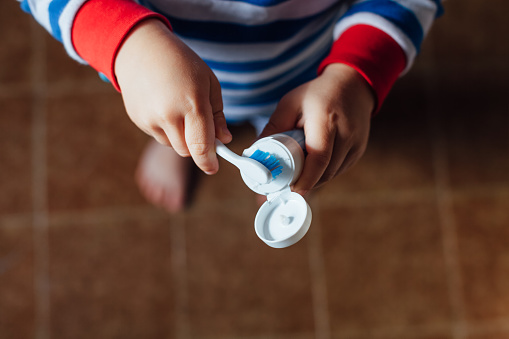Legislation to phase out microbeads has passed but you don’t need to wait to protect your oral health.
 On December 28, 2015, President Obama signed the Microbead-Free Waters Act of 2015. This legislation requires all toothpaste and soap manufacturers to stop putting microbeads into their products by July 1 2017. All products containing microbeads must disappear from store shelves by July 1, 2018.
On December 28, 2015, President Obama signed the Microbead-Free Waters Act of 2015. This legislation requires all toothpaste and soap manufacturers to stop putting microbeads into their products by July 1 2017. All products containing microbeads must disappear from store shelves by July 1, 2018.
Manufacturers are actually responding much faster than required, with Johnson & Johnson announcing way back in 2013 that all their Rembrandt and Listerine brand toothpastes would be free of microbeads by the end of 2017. Proctor & Gamble has made a similar promise, and Colgate-Palmolive already stopped making microbead toothpastes in 2014.
But of course, you don’t have to wait to protect your oral health against toothpastes containing microbeads. Dentists have long recommended that patients avoid these products, so if you have a toothpaste with microbeads you may want to go toss it in the garbage now.
What’s the Big Deal About Microbeads?
Microbeads were added to soaps and toothpastes as a way of “enhancing the cleaning experience” say manufacturers. And while it’s true that microbeads do seem to help scrub away grime, microbeads are actually making the planet dirtier.
Microbeads are made of plastic and are not biodegradable. They are also small enough to pass through water treatment facilities’ filtration systems without being strained out like debris should be. This has led to large amounts of microbeads being found polluting various bodies of water.
For example, here in California a recent study revealed that staggering amounts of the plastic microbeads were found in the San Francisco Bay as well as in the Pacific Ocean. Another study showed that microbeads were amassing in the Great Lakes and that in addition to contaminating the water, the bits of plastic were also being found in the fish of Lakes Erie, Huron, and Superior.
Microbeads Might Be In Your Gum Pockets Right Now
From an oral health perspective, microbeads are worrisome because they occasionally become trapped in the pockets between gums and teeth. This can cause irritation and pain in some cases.
If you have been using a toothpaste with microbeads, you may wish to schedule a dental cleaning and exam. During the cleaning, your dental hygienist will check your gum pockets as a matter of routine, looking for signs of inflammation and gum disease. As they check, they will naturally also notice any tiny blue flecks of plastic that may be trapped there. If you wish, you can have these microbeads removed with a deep cleaning.

